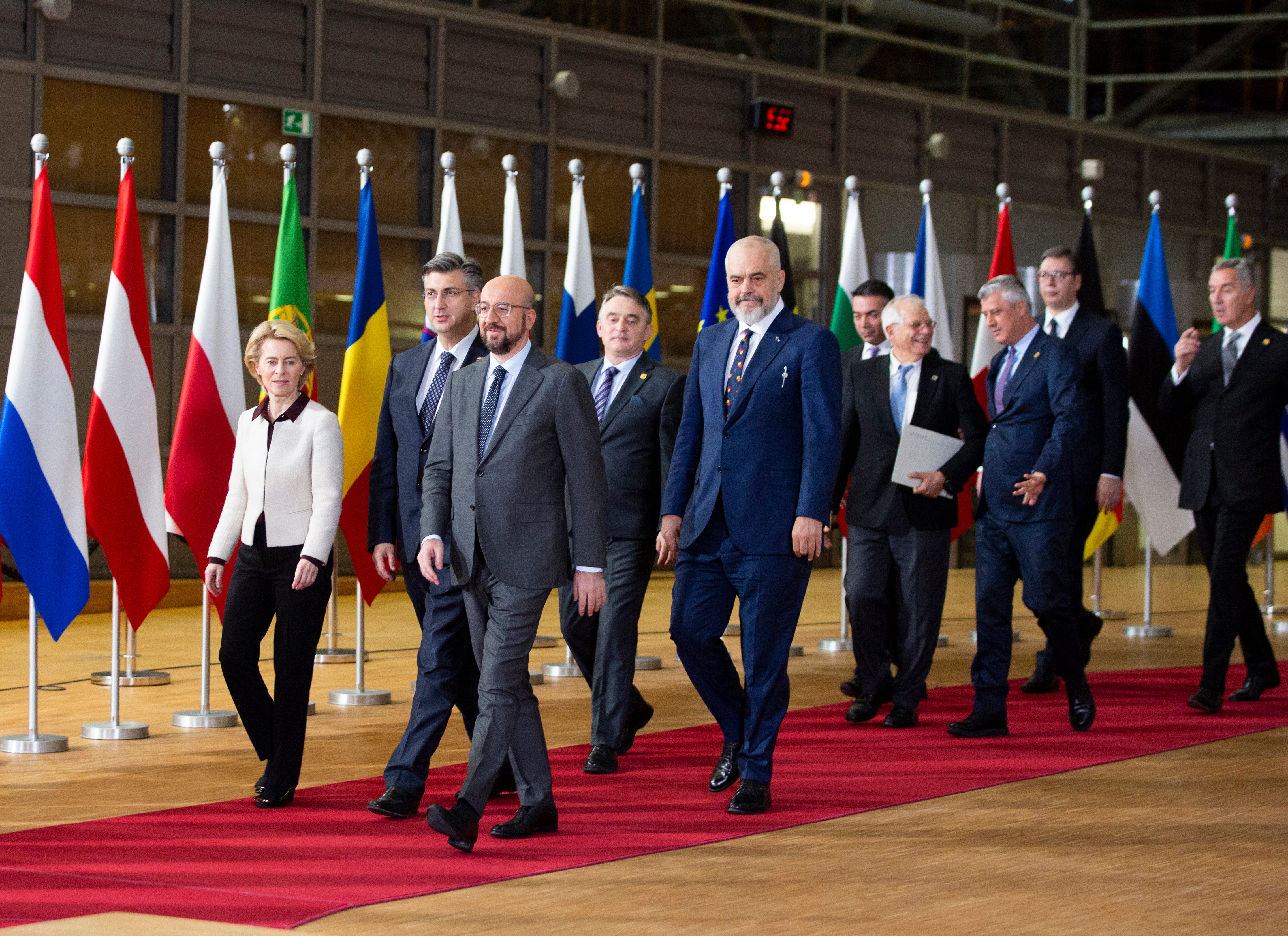EU auditors: Rule of law aid for W Balkans doesn't pay off
European Union auditors say that the hundreds of millions of euros that the bloc has poured into six Western Balkan nations to improve the rule of law there just doesn't pay off

Your support helps us to tell the story
From reproductive rights to climate change to Big Tech, The Independent is on the ground when the story is developing. Whether it's investigating the financials of Elon Musk's pro-Trump PAC or producing our latest documentary, 'The A Word', which shines a light on the American women fighting for reproductive rights, we know how important it is to parse out the facts from the messaging.
At such a critical moment in US history, we need reporters on the ground. Your donation allows us to keep sending journalists to speak to both sides of the story.
The Independent is trusted by Americans across the entire political spectrum. And unlike many other quality news outlets, we choose not to lock Americans out of our reporting and analysis with paywalls. We believe quality journalism should be available to everyone, paid for by those who can afford it.
Your support makes all the difference.European Union auditors say that the hundreds of millions of euros the bloc has poured into six Western Balkan nations to improve the rule of law there just doesn’t pay off.
The report by the European Court of Auditors, or ECA, that was published Monday shows that the countries often continue to show a lack of commitment to tackle anything from pervasive corruption to state interference that would help them on the way to the EU membership they so desire.
Faced with myriad problems on their own, the EU's 27 members have been dragging their feet to embrace Albania North Macedonia Montenegro Serbia Bosnia-Herzegovina and Kosovo and bring membership closer. At the same time, the influence of China and Russia has increased in the volatile region.
“EU support for the rule of law in Western Balkans has clearly not been successful in bringing about wholesale change," said Juhan Parts, who wrote the highly critical ECA report.
The 52-page report shows how little has been achieved with 700 million euros ($795 million) in aid to revamp institutions from 2014 to 2020. Even more was spent over the past two decades, when the nations had emerged from Communist rule, war and internal strife and were enticed to lay the groundworks of a Western democracy.
The report said that the EU often used too much carrot and not enough stick as the investments into projects failed to have an impact on overall society.
“The EU has too rarely exploited the possibility of suspending assistance if a beneficiary fails to observe the basic principles of democracy, the rule of law and respect for human rights,” the ECA said in a statement.
Even if the report “some positive recent developments, mainly in Albania and North Macedonia,” it said that “in a context of insufficient political will (EU support) has had a limited overall impact in advancing fundamental role of law reforms.”
It said major problems in the nations remained linked to the independence of the judiciary, the concentration of power, political interference and corruption.
If any nation wants to become a member, it has to commit to thousands of rules and regulations already in use in the bloc. During the membership application, they are negotiated in separate chapters and include respect for the rule of law and democratic standards, media freedom and judicial independence, and the implementation of socio-economic reforms.
The study, with its often stinging criticism, comes at a time when the momentum of EU enlargement has grinded to a halt, both because current members are too inward looking at a time of pandemic angst, and authoritarian streaks are running stronger through some governments in the region.
The prospect of membership has been a powerful driving force for reforms in the Balkans since the former Yugoslavia disintegrated into war in the early 1990s. Croatia and Slovenia have joined, but the EU hasn't expanded since 2013.